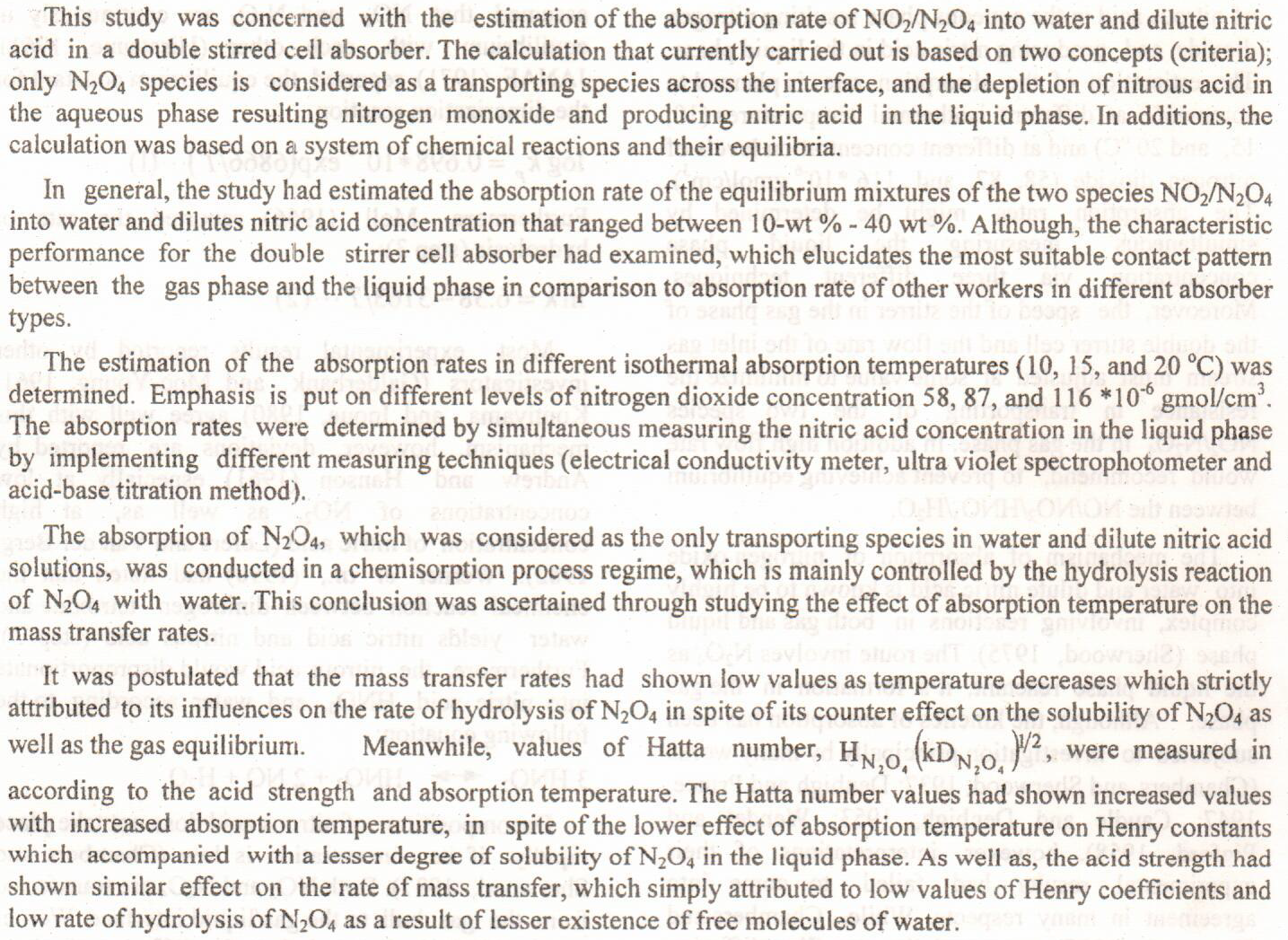
raisin on mice in comparison with negative (phosphate buffer saline (PBS) and positive Mitomycin-C (MMC) controls. Moreover, the effect on fertility hormones (follicles stimulation hormone/FSH, lutenising hormone/LH) was also measured. The effect of the extracted samples were measured by employing cytogenetic analysis which included (the mitotic index (MI), chromosomal aberrations (CAs) and micronucleus (MN)) parameters. Results showed that significant increase in MI and significant reduction in both CAs and MN percentage were seen after treatment with both alcoholic and water extracts of the two raisins and alcoholic extracts was more effective than water extracts. On the other hand both the gold and black raisin enhanced the levels of the
... Show More1,3,4-oxadizole and pyrazole derivatives are very important scaffolds for medicinal chemistry. A literature survey revealed that they possess a wide spectrum of biological activities including anti-inflammatory and antitumor effects.
To describe the synthesis and evaluation of two classes of new niflumic acid (NF) derivatives, the 1,3,4-oxadizole derivatives (compounds 3 and (4A-E) and pyrazole derivatives (compounds 5 and 6), as EGFR tyrosine kinase inhibitors in silico and in vitro.
The designed compounds were synthesized using convent
 (10)
(10)
 (9)
(9)
One of the most important challenges facing the designers of the sewerage system is the corrosion of sewers due to the influence of sewerage contaminates which lead to failure of the main lines of sewers. In this study, a reference mix of 1: 1.5: 3 was used and the 4% Flocrete PC200 by weight of cement was added to the same mixing ratio in the second mixture. Twenty-four samples were tested for each mixture, 12 of which were used to compression strength test in ages (7, 14 and 28) day and six samples were submerged after 28 days of wet treatment at (5 and 10) % concentrations of sulfuric acid. The other six samples were painted after 28 days of wet treatment with coating Polyurethane and after 24 hours were flooded with a concentrat
... Show MoreSynthesis three organic inhibitors for carbon steel corrosion: 2-(propylthio)-1H-benzo[d]imidazole (PTBI), 2-(allylthio)- 1H-benzo[d]imidazole (ATBI) and 2-(prop-2-ynylthio)-1H-benzo[d]imidazole (YTBI) were prepared from reaction of 2-mercapto benzimidazole with different alkyl halide. The melting point and TLC were used to confirm the purity of the inhibitors as well as using the [FTIR, 1H-NMR and 13C-NMR] for the identify structures. The synthesized inhibitors were examined by potentiostatic polarization measurement as corrosion inhibitors of carbon steel in acidic media [1M H2SO4 ].The polarization measurement results showed that the mixed type inhibitors. In addition, the efficiency of inhibitors (YTBI) were studied at different con
... Show MoreMefenamic acid belongs to non-steroidal anti-inflammatory drugs that are used widely for the treatment of analgesia. Our aim from this study is to establish a new assay for the quantitative determination of mefenamic acid (MFA) in the pharmaceutical sample by two sensitive and rapid flow injection-fluorometric methods. A homemade fluorometer was used in fluorescence measurements, which using solid-state laser diode 405 and 532 nm as a source, combined with a continuous flow injection technique. The first method depends on the effect of MFA on calcein blue (CLB) fluorescence at 405 nm. Another method is a study of rhodamine-6G (Rh-6G) fluorescence after adding MFA, and recording at 532 nm. Optimum parameters as fluorescent dye concen
... Show More (5)
(5)
 (4)
(4)
Asthma is a chronic respiratory disorder in which immunological and structural cells play a role. The limits of conventional medicines necessitate the development of innovative therapeutic techniques for asthma. In the present study, we investigated the possible protective effect of cinnamic acid (CA) on ovalbumin-induced asthma in a mouse model. Sixty albino male mice BALB/c type weighing (20-30) grams were chosen at random and divided into five groups each one contains 12 animal: Group I: PBS/liquid paraffin control. Group II: asthma model group. Group III: cinnamic acid control group; mice received cinnamic acid (50 mg/kg) in liquid paraffin orally by gavage. Group IV: asthma model / group of (25 mg / kg) cinnamic acid; mice received
... Show More (2)
(2)
 (2)
(2)
The relationship of hyperuricemia to kidney disease, diabetes, hypertension and the risk of cardiovascular diseases remain controversial. The aim of this study is to evaluate the use of uric acid (UA) levels to find the higher risk of cardiovascular disease (CVD) in patients with end stage renal disease that have diabetic nephropathy (DN), nephropathy with hypertension (NH) and patients with both diabetic nephropathy with hypertension (DNH). This study deals with 115 patients with end-stage renal disease under hemodialysis sub-grouped into 35 patients with (DN), 40 patients with (NH), and 40 patients with (DNH). Some biochemical parameters were determined in the serum of all participants such as HbA1c, fasting blood glucose (FBG), UA, urea,
... Show More (1)
(1)
 (3)
(3)
 (8)
(8)
 (10)
(10)
